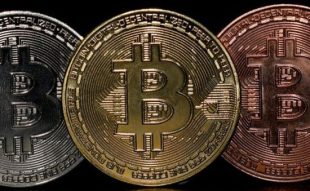Join Our Telegram channel to stay up to date on breaking news coverage
In a research report just released, renowned short-selling firm Hindenburg Research accuses Block Inc., the parent company of Square, of fraud, aggressive behavior, and inflating user counts.
The report states that:
In sum, we think Block has misled investors on key metrics, and embraced predatory offerings and compliance worst-practices in order to fuel growth and profit from facilitation of fraud against consumers and the government.
What is Block?
Block, Inc. (formerly Square, Inc.) is a large U.S. multinational tech company founded in 2009 by Jack Dorsey, best known as the founder of Twitter, and Jim McKelvey. They launched its first platform in 2010 and It has been traded as a public company on the New York Stock Exchange since November 2015 with the ticker symbol SQ.
The company was renamed as “Square” in 2021 with the intention to reflect the growing side of its business – Cash App. The tech company operates financial transactions, ranging from payments to merchants to payments between individuals. In addition, they also offer point-of-sales systems and an app that allows people to trade crypto.
Short position damages stock
Hindenburg Research said they now have short positions in shares of Block, in a disclaimer on the report.
As a result of these revelations, Block shares fell as much as 17% from their prior close of $72.65 in pre-market trading following the report’s early Thursday morning release. Under the ticker symbol SQ, the corporation trades on the NYSE. The situation worsened as soon as the markets opened, with shares dropping as low as $58, their lowest level since the year’s beginning, before rising to about $63 at the time of writing. Today, it is down almost 13%.
Block counteracts
Block said in a statement early on Thursday that it will cooperate with the Securities and Exchange Commission of the United States (SEC) and may take legal action against the company for what it called a “factually inaccurate and misleading report.”
They responded that Hindenburg is known for this kind of tactics intended to let short sellers profit from a falling stock price, and that they will provide full transparency to dispel their claims:
Cash App
When it first launched in 2013, Cash App was known as Square Cash. The primary idea was to use peer-to-peer payment platforms and be able to pay individuals directly via email.
Customers can use the Cash App on their cellphones to pay for products and services. The unique app was initially made available for free download on both Android and iOS. One year later, Cash App expanded their service by including mobile phone number capabilities.
Businesses in the US can now use the USA Launch Cash App as of 2015. Businesses initially paid a 1.5% transaction fee for each transaction. Sending money to relatives and friends, however, was totally free for users.
Exchange for Bitcoin
There was no charge when Cash App started allowing customers to buy and sell Bitcoin from their balance in 2017. By the end of 2019, the charge for using this service had increased to 1.76%, therefore this had changed. One of the most lucrative Cash App Services is still this one.
The difference between the Bitcoin charge and individual prices is normally between 1% and 4% in addition to the service fee. Due to the disparity in costs, Cash App is able to charge more for each transaction.
Block Compliance Issues
The investigation contends that Block “suppressed internal concerns and ignored user pleas for help as criminal activity and fraud ran rampant on the platform” when the COVID-19 outbreak endangered its revenue from merchant point of sale services.
Block (which was still known as Square at the time) announced $4.7 billion in total net sales in its 2019 annual report. According to a Securities and Exchange Commission filing, of that, 65% comes from transaction fees, 22% from its subscription and software business, 2% from hardware like the Square Terminal, and the remaining from Bitcoin.
When Block purchases Bitcoin, it then sells it to consumers through its Cash App, earning money in the process.
The next year, Block experienced a decline in second-quarter transaction, subscription, and hardware income as a result of widespread lockdowns brought on by the pandemic. However, by the second part of 2020, things had begun to improve. Retailers processing more “card not present” purchases, which carry a higher cost, caused transaction fees to increase. Additionally, Cash App contributed to the subscription category’s revenue growth, which increased by 49% to $1.5 billion.
The company’s whole net revenue the year before the epidemic began was approximately equivalent to the subscription revenue by the end of 2022, when it had risen to $4.5 billion.
According to the Hindenburg investigation, the corporation refused requests from federal and state law enforcement, which is why Block’s Cash App allegedly developed so quickly since it was being used to fraudulently collect COVID relief payments.
Hindenburg stated in its report that Cash App disregarded internal employee concerns as well as warnings from the Secret Service, the U.S. Department of Labor OIG, FinCEN, and state regulators in an apparent effort to protect its growth engine. These warnings specifically identified the issue of multiple COVID relief payments going to the same account as an obvious sign of fraud.
Inaccurate user counts?
Another one of the claims that Hindenburg did is that former workers of Block informed its investigators that the firm “wildly inflated” the number of users by as much as 75% and that it deliberately uses a “‘Wild West approach to compliance’ to draw criminal actors who create accounts in bulk for identity fraud and other crimes.
The business claims that Block blacklisted specific accounts that were discovered to have committed fraud but did not ban individuals who had opened numerous other accounts that they were allegedly using for illegal conduct.
According to Hindenburg, the company renamed two accounts “Donald Trump” and “Elon Musk” to see how simple it would be for a user to register accounts in another person’s name. Even a picture of a “Donald J. Trump” Cash Card that the corporation had ordered was included.
Block stated that Cash App has 51 million active users as of last month when it submitted its 2022 annual report—an increase of 16% from 2021.
Scathing remarks for insiders
Hindenburg points out that Block co-founders Jack Dorsey and James McKelvey sold more than $1 billion worth of shares as the company’s stock price increased by more than 600% during the pandemic.
According to the study, Dorsey has been “professing to care deeply about the demographics he is taking advantage of,” which is particularly damning for him.
Dorsey made a joke about how well-liked Cash App was in hip-hop in 2020.
“Cash App” has a highly mainstream customer. The number of hip-hop songs that use the phrase “Cash App” or are even named “Cash App” is fairly astounding, as I mentioned on the call and possibly earlier on stage. I believe there are over 1,000 or 2,000 at this time.
Cash App has been mentioned in so many pop culture references that academic papers have been created by researchers about how it affects financial inclusion in Black American communities. While Cash App gives users the freedom to schedule transactions from any location, a 2022 study found that it also introduces hidden costs and social media gamification tactics that encourage unwarranted financial risk (such as entering competitions).
Hardly ever mentioned
Notably, there are just two references to Bitcoin in the 17,000-word report, both of which state that the company started enabling users to conduct BTC transactions with their Cash App accounts in 2018. Hindenburg’s report focuses primarily on how Block boosted its company during the outbreak.
However, if it had emphasized cryptocurrency more, Hindenburg would not have been the first to criticize the sector.
A $1 million reward was offered by Hindenburg in late 2021, when the market capitalization of all cryptocurrencies reached an all-time high of $3 trillion, for “information leading to previously undisclosed details about cryptocurrency stablecoin Tether‘s backing.”
Only 10% of the assets backing the stablecoin, which is linked 1:1 to the dollar, were then held as cash and bank deposits, according to a study by Tether. Commercial paper, a type of unsecured, short-term debt issued by firms, was used to hold close to half of Tether’s backing.
Related
- Elon Musk and Jack Dorsey discussed promoting decentralization on Twitter
- Jack Dorsey’s Bluesky Social is now officially in beta, and will launch soon
- Cash App adopts Lightning Network to support BTC transactions
Join Our Telegram channel to stay up to date on breaking news coverage


